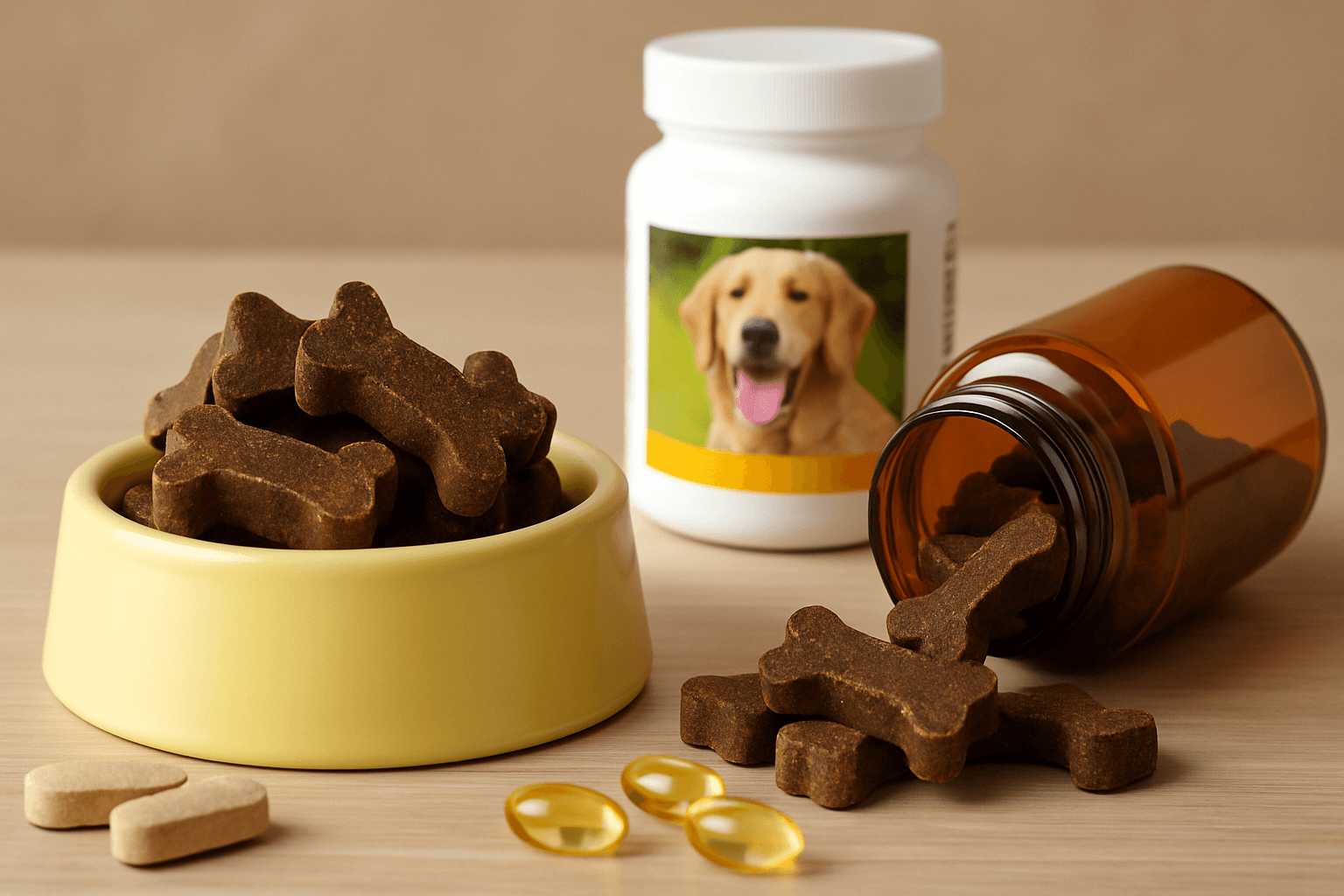If you're anything like me, your dog isn't just a pet—they're family. And just like we take daily vitamins to stay healthy, you might be wondering: are multivitamins good for dogs? Let's dive into the world of dog supplements and uncover whether your pup really needs that extra nutritional boost.
Why Consider Multivitamins for Dogs?
Just like humans, dogs can face nutritional gaps—especially if they're picky eaters, on a homemade diet, or getting older. Here's where canine multivitamins come in. They help support:
- Joint health – Think glucosamine and chondroitin for aging hips
- Skin and coat – Omega-3s can help with that itchy dryness
- Immune support for dogs – Vitamins C and E are fantastic for this
- Energy and vitality – B-vitamins are key here
So yes, dog vitamin benefits are real—if your dog actually needs them.
Does Every Dog Need Supplements?
Not necessarily. If your pup eats a complete, balanced commercial diet, they may already be getting everything they need. But there are exceptions:
- Senior dogs – Their nutrient absorption changes
- Active or working dogs – Higher nutrient demands
- Dogs with health issues – From digestion to allergies
In my own experience, my Lab mix, Luna, started slowing down around age 8. A vet-recommended senior dog multivitamin helped bring back her spark in just a few weeks!
How to Choose the Best Vitamins for Dogs
Not all dog multivitamins are created equal. Here’s what I recommend looking for:
- Vet-approved formulas – Always check the label and consult your vet
- No artificial fillers – Avoid anything with unnecessary additives
- Targeted support – Choose based on your dog's age, breed, and health
For example, brands like Zesty Paws and NaturVet are trusted by many pet parents, including me.
Dos and Don’ts of Giving Dog Supplements
- ✅ Do check with your vet before starting any new supplement
- ✅ Do follow feeding guidelines closely
- ❌ Don’t double up on vitamins—they can be harmful in excess
- ❌ Don’t give human supplements to dogs
Feeding Guidelines
Feeding depends on weight and formulation, but here's a general idea:
- Small dogs (under 25 lbs): 1 chew/tablet daily
- Medium dogs (25–75 lbs): 2 chews/tablets daily
- Large dogs (75+ lbs): 3 chews/tablets daily
Again—always check the label and talk to your vet.
Final Thoughts: Should You Give Your Dog a Multivitamin?
If your pup has special needs or you're feeding a homemade or raw diet, a multivitamin might be a game-changer. Otherwise, focus on high-quality food and targeted support when needed. Dog health supplements can work wonders—but only when used wisely.
Need more wellness tips? Check out more healthy treats for dogs to keep their tails wagging!
Frequently Asked Questions (FAQs)
1. What are the best vitamins for dogs?
2. Are multivitamins good for dogs?
3. Can I give my dog human vitamins?
4. Do puppies need multivitamins?
5. What’s the best multivitamin for senior dogs?
6. How long before I see results from dog supplements?

About SniffnTail
SniffnTail is your go-to destination for everything pets. From helpful advice, tips, and insights to thoughtfully selected products and resources, we’re here to support pet owners at every stage of their journey. Whether you're caring for a playful pup, a wise old cat, or anything in between, SniffnTail offers tools and knowledge to make pet parenting easier and more joyful.
Related Articles
 Nutrition • 7 min read
Nutrition • 7 min readHow to Know If My Dog Is Too Skinny: Expert Signs & Solutions
Wondering "Is my dog too skinny?" Learn the key signs of an underweight dog, how to check dog body fat, and what to do to keep your pup healthy and happy.
 Nutrition • 6 minutes
Nutrition • 6 minutesParsley for Dogs: A Fresh Take on a Natural Herb
Wondering if parsley is safe for dogs? Learn the health benefits of parsley for dogs, feeding tips, and how to use this dog-friendly herb to freshen breath and boost wellness.
 Nutrition • 6 min read
Nutrition • 6 min readCan Dogs Eat Raspberries? A Vet-Backed Guide for Pet Parents
Wondering if dogs can eat raspberries? This friendly, vet-backed guide explains the benefits, risks, and best ways to feed raspberries to your furry friend.

